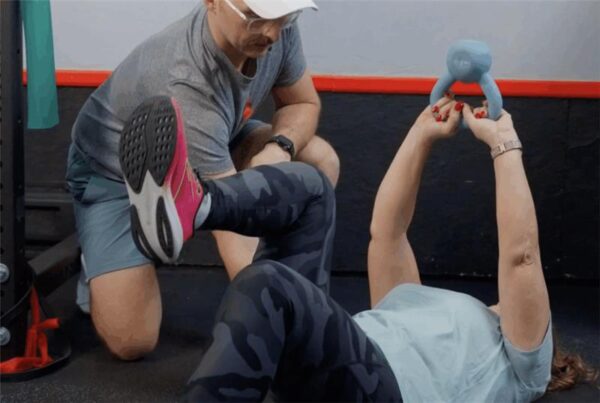Chiropractor care continues to evolve as more individuals experience long-term musculoskeletal discomfort and persistent chronic pain. Chiropractor offices are increasingly adapting their approaches to address these growing health concerns, emphasizing personalized treatment plans that focus on spinal alignment, posture correction, and holistic wellness. Patients with recurring pain conditions often seek consistent care to improve mobility, reduce inflammation, and enhance overall quality of life. Clinics are integrating preventive strategies alongside corrective therapies, ensuring that treatment extends beyond temporary relief. By responding to the rising prevalence of chronic pain, chiropractor practices are reshaping their services to meet patient needs efficiently, combining hands-on adjustments with supportive lifestyle guidance to promote sustainable health outcomes.
Enhanced Patient Assessment Protocols
Chiropractor offices are implementing more detailed patient evaluations to better understand chronic pain sources. Comprehensive assessments now include posture analysis, mobility checks, and lifestyle evaluations to create individualized treatment plans. These enhanced protocols help identify underlying issues that may contribute to recurring pain, allowing chiropractors to address problems proactively. By investing time in thorough initial assessments, practitioners can monitor progress over multiple visits, adjust treatment intensity, and ensure targeted interventions. Enhanced evaluations also help patients understand their condition better, fostering collaboration and adherence to recommended therapies that support long-term relief and improved functional health.

Integration of Preventive Therapies
Modern chiropractor care emphasizes preventing chronic pain from worsening through proactive interventions. Offices are incorporating preventive therapies such as guided stretches, ergonomic counseling, and corrective exercises into regular sessions. These strategies aim to reduce strain on the spine, enhance muscle support, and promote balanced posture. Preventive care helps patients maintain mobility and minimize the risk of flare-ups, offering a sustainable approach to wellness. Chiropractors are increasingly educating patients on daily habits and body mechanics that prevent repetitive stress injuries, ensuring that care extends beyond the clinic.
Guided Stretch Programs
Guided stretch programs in chiropractor care focus on improving flexibility, reducing tension, and enhancing spinal alignment. Patients learn targeted movements designed to prevent strain, improve circulation, and maintain joint mobility, supporting long-term chronic pain management and overall physical wellness effectively.
Ergonomic Counseling Benefits
Ergonomic counseling helps patients adjust workspaces, seating, and daily routines to reduce spinal stress. Chiropractors guide individuals in adopting proper posture, lifting techniques, and workstation setups, minimizing repetitive strain injuries and supporting healthier, sustainable daily habits that complement treatment plans.
Corrective Exercise Plans
Corrective exercise plans strengthen core muscles, improve stability, and support proper posture. Chiropractors tailor routines to each patient’s condition, reducing the likelihood of flare-ups, enhancing mobility, and providing proactive solutions that reinforce the effectiveness of hands-on adjustments and spinal care.
Daily Habit Education
Chiropractors educate patients on daily habits that affect spinal health, including lifting, sitting, and movement patterns. By adopting proper body mechanics and mindful routines, patients can prevent repetitive strain, reduce chronic pain risks, and maintain long-term functional wellness outside the clinic.
Proactive Pain Management
Preventive therapies transform chiropractor care into proactive pain management. Combining adjustments, exercises, and lifestyle guidance, these strategies reduce the severity and frequency of chronic pain episodes, allowing patients to maintain mobility, independence, and a higher quality of life through consistent, informed care.
Tailored Treatment Plans for Chronic Conditions
Chiropractor offices are moving away from generic approaches, instead designing tailored plans that target each patient’s specific chronic pain profile. Treatment plans consider factors like pain intensity, mobility limitations, and daily activity requirements. Adjustments are scheduled strategically to align with the patient’s recovery needs, often combining spinal manipulation with supportive exercises. By personalizing care, chiropractors ensure that interventions address both immediate discomfort and long-term health goals. Tailored strategies also empower patients, giving them a clear roadmap for recovery. Individualized plans improve treatment efficiency, reduce the likelihood of recurring pain, and help patients achieve measurable improvements in physical function.
Expanded Focus on Posture and Ergonomics
Addressing chronic pain often requires more than hands-on adjustments, prompting chiropractor offices to integrate posture and ergonomic guidance. Clinics assess patients’ workspaces, daily routines, and sitting or standing habits to recommend modifications that reduce strain. This holistic approach complements traditional chiropractic techniques by correcting alignment issues that contribute to long-term discomfort. Educating patients on posture, lifting techniques, and ergonomic setups helps prevent new pain episodes and supports spinal health. By combining physical adjustments with lifestyle adaptations, chiropractor practices create comprehensive programs that improve functional movement, promote comfort, and reduce the overall burden of chronic pain on patients’ daily lives.
Collaborative Wellness Approaches
Chiropractor offices are increasingly adopting collaborative strategies, integrating advice on nutrition, fitness, and stress management to support overall wellness. Chronic pain is often exacerbated by inflammation, poor conditioning, or tension, making a multifaceted approach essential. By providing guidance on strengthening exercises, low-impact activities, and proper body mechanics, chiropractors help patients build resilience against recurring discomfort. Collaborative care ensures that adjustments are reinforced by lifestyle improvements, enhancing recovery outcomes. Patients benefit from a coordinated approach that addresses both symptoms and contributing factors. This integration of wellness strategies promotes sustainable relief and empowers individuals to maintain a healthier, more active lifestyle.
Monitoring Progress Through Technology
Chiropractor offices are using technology to track patient progress and refine treatment plans over time. Digital posture analysis, range-of-motion tracking, and pain assessment tools allow practitioners to measure improvements objectively. Technology also enables patients to visualize their progress, motivating adherence to care routines and home exercises. Data-driven monitoring supports adjustments in treatment intensity, ensuring interventions remain effective and targeted. By incorporating technology, chiropractor offices can detect subtle changes in alignment or function, preventing setbacks and optimizing recovery. This approach provides both practitioners and patients with actionable insights, enhancing the precision and effectiveness of chronic pain management strategies.
Community Education and Outreach
Chiropractor practices are extending their influence by educating communities about spinal health and chronic pain prevention. Workshops, informational sessions, and wellness programs help people understand risk factors, proper posture, and strategies for maintaining mobility. Community outreach fosters awareness and encourages proactive health habits before pain becomes severe. By promoting education, chiropractors contribute to public health initiatives that reduce the prevalence of musculoskeletal issues. These efforts also strengthen patient trust, creating a supportive network that extends beyond individual appointments.
Spinal Health Workshops
Spinal health workshops hosted by chiropractor practices provide hands-on guidance, posture tips, and exercises to prevent chronic pain. Participants learn strategies to maintain spinal alignment, improve mobility, and reduce musculoskeletal risks, fostering healthier habits and long-term physical wellness within the community.
Informational Sessions for Awareness
Informational sessions educate communities on risk factors for chronic pain, proper posture, and safe movement techniques. Chiropractors share knowledge that empowers individuals to identify potential problems early, encouraging proactive health management and reducing the likelihood of long-term musculoskeletal issues.
Wellness Programs Implementation
Wellness programs organized by chiropractor offices integrate exercises, lifestyle guidance, and preventive care strategies. These initiatives promote physical fitness, reduce strain on the spine, and create sustainable habits, allowing participants to manage their musculoskeletal health effectively while minimizing future pain complications.
Promoting Proactive Health Habits
Chiropractor-led outreach emphasizes adopting daily routines that support spinal health. By teaching correct posture, stretching, and ergonomic practices, these programs reduce the risk of chronic pain development, encouraging participants to engage in preventive measures before discomfort becomes a persistent issue.
Building Community Support Networks
Community education strengthens patient trust and creates supportive networks that extend beyond clinic visits. Chiropractors connect individuals with resources, guidance, and peer encouragement, fostering collaboration and shared knowledge that reinforces long-term spinal health and chronic pain prevention strategies.
Conclusion
As chronic pain continues to affect more individuals, chiropractor offices like Rehab Lab are evolving to meet these growing needs. By combining personalized care, preventive strategies, and ongoing wellness support, patients can experience lasting relief and improved mobility. Focusing on spinal health, posture correction, and targeted adjustments, these offices are dedicated to addressing both immediate discomfort and long-term physical well-being.
For those in Wauwatosa seeking professional chiropractic care, Rehab Lab provides expert services designed to manage and reduce chronic pain effectively. Visit us at 11707 W Dearborn Ave, Wauwatosa, WI, or call (920) 533-0771 to schedule a consultation and take the first step toward lasting wellness.




